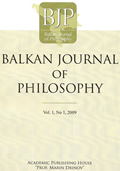Trust in Experts: Contextual Patterns of Warranted Epistemic Dependence
Trust in Experts: Contextual Patterns of Warranted Epistemic Dependence
Author(s): Gábor KutrovátzSubject(s): Philosophy
Published by: Институт по философия и социология при БАН
Keywords: epistemic dependence; expertise; public understanding of science; social epistemology; testimony
Summary/Abstract: Recent work in social and cultural studies of science and technology has shown that the ‘epistemic dependence’ of laypeople on experts is not a relation of blind trust, but typically and necessarily involves critical assessment of expert testimonies. Normative epistemologists have suggested a number of criteria, mostly of contextual nature since expert knowledge means restricted cognitive access to some epistemic domain, according to which non-experts can reliably evaluate expert claims; while science studies scholars have concentrated on how laypeople can come to warranted decisions about technical matters on non-technical grounds. Instead of addressing the problem transcendentally (how such decisions are possible) or normatively (how such decisions should be reached), this paper contrasts the recommendations available in the literature with the empirical findings of a rough case study concerning the public reaction to the H1N1 vaccine issue. Awareness of how lay people do come to such decisions may inform and refine normative philosophical investigations.
Journal: Balkan Journal of Philosophy
- Issue Year: II/2010
- Issue No: 1
- Page Range: 57-68
- Page Count: 12
- Language: English

